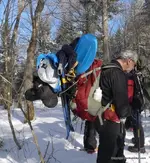- Joined
- May 28, 2010
- Messages
- 20,303
- Reaction score
- 32,229
- Golden Thread
- 1
- Location
- White Plains, New York
- 🥇 Banner finds
- 1
- 🏆 Honorable Mentions:
- 1
- Detector(s) used
- Nokta Makro Legend// Pulsedive// Minelab GPZ 7000// Vanquish 540// Minelab Pro Find 35// Dune Kraken Sandscoop// Grave Digger Tools Tombstone shovel & Sidekick digger// Bunk's Hermit Pick
- Primary Interest:
- Metal Detecting
What do you think? What would you add for beginning hobbyists? 
https://www.youtube.com/watch?v=C80OTsyXEL8
https://www.youtube.com/watch?v=C80OTsyXEL8
Amazon Forum Fav 👍
Upvote
0






